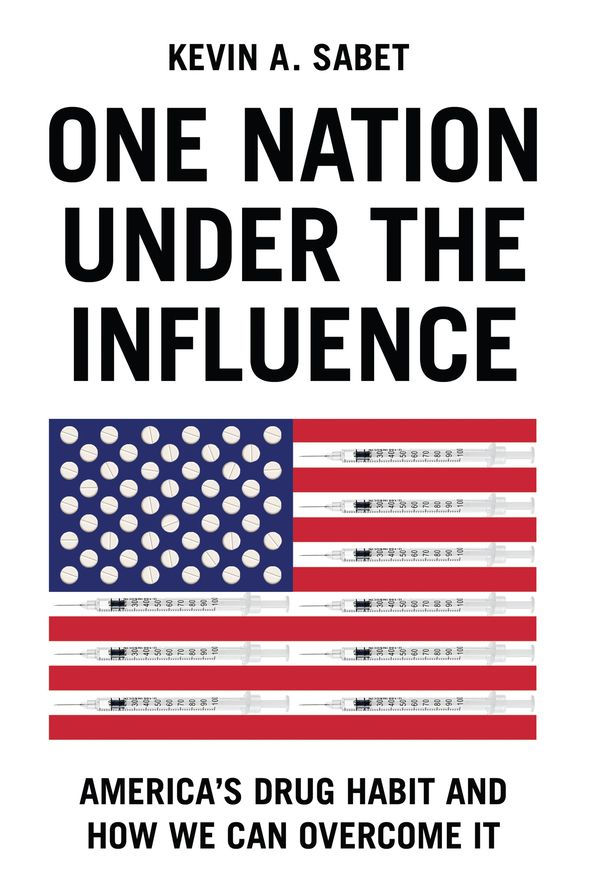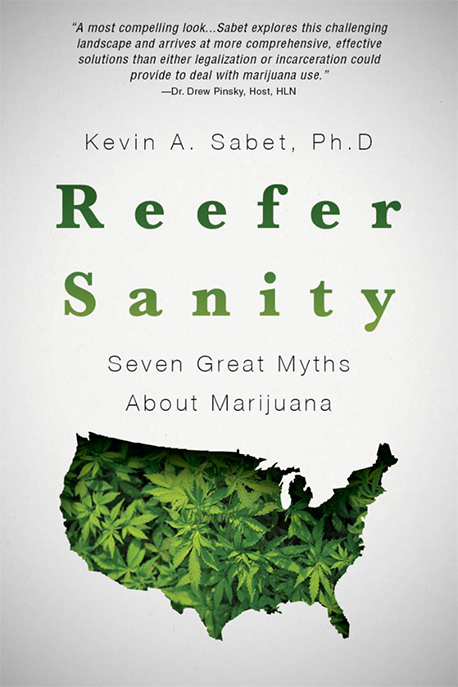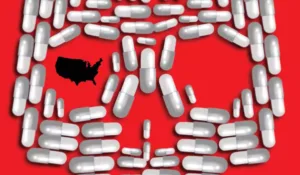“The most important new voice in the American drug policy debate…”
David Frum, Sr.
Editor of The Atlantic


“I wish… Kevin Sabet every success in… (his)…project to make sure marijuana is handled responsibly…in such an enlightened way.”
US President Jimmy Carter
“To remain silent not only betrays widely shared values of compassion and justice for the most vulnerable. It also leaves policy in the hands of extremists who would relegate a very serious and consequential discussion to frivolous and dangerous quarters.”
New York Times op-ed by Kevin Sabet

MY BOOKS
One Nation Under the Influence: America’s Drug Habit and How We Can Overcome It
We are in the midst of the worst drug crisis in American history. What are we going to do about it?
Around 100,000 Americans died of a drug overdose last year – nearly double the number who died in Vietnam. More than 1,000,000 have perished since 2000, thanks largely to an explosion of fentanyl and other addictive opioids. But fentanyl, abundant methamphetamine, and other lethal drugs are not the only things that are killing us: Our policy is. So far, America has lacked the will to do better. That must change, and this book tells us how.
No one is immune, which is why Kevin Sabet has authored this remarkable book. Sabet, dubbed the “the quarterback of the new anti-drug movement” by Salon, has spent most of his life battling the destructive effects of drugs. In One Nation Under the Influence, he asks hard questions and provides clear answers, taking readers from the streets of San Francisco and New York to the southern border, up to Canada, and across to Europe to show how we can chart a necessary way forward. The solutions are out there, if only we have the will to apply them.
Kevin Sabet, dubbed a “prodigy of drug politics” by NBC News, is the only person to have been appointed by both Republicans and Democrats as an advisor at the White House drug policy office. He holds a doctorate from Oxford University and is the president and CEO of the Foundation for Drug Policy Solutions (FDPS) and Smart Approaches to Marijuana (SAM). His previous book, Smokescreen: What the Marijuana Industry Doesn’t Want You to Know, won a Next Generation Indie Book Award and was optioned for a documentary. His work has appeared in the New York Times, Wall Street Journal, Washington Post, and numerous other publications. He writes a regular column on drug policy for Newsweek, and is a fellow at Yale University.
SMOKESCREEN: What The Marijuana Industry Doesn’t Want You To Know
Smokescreen: What the Marijuana Industry Doesn’t Want You to Know examines the inside story behind the headlines, containing accounts from Sabet’s time in the Obama administration to stunning revelations from whistleblowers speaking out for the first time. What it finds is how the marijuana industry is running rampant without proper oversight, leaving Americans’ health seriously at risk.
Included are interviews with industry insiders who reveal the hidden dangers of a product they had once worshipped.
Also contained in these pages are insights from a major underground-market dealer who admits that legalization is hastening the growth of the illicit drug trade.
And more to the heart of the issue are the tragic stories of those who have suffered and died as a result of marijuana use, and in many cases, as a result of its mischaracterization. Readers will learn how power brokers worked behind the scenes to market marijuana as a miracle plant in order to help it gain widespread acceptance and to set the stage for the lucrative expansion of recreational pot.
The author of this compelling first-person narrative leading the national fight against the legalization of cannabis through his nonprofit, Smart Approaches to Marijuana (aka SAM) is Kevin Sabet. As a policy advisor to everyone from county health commissioners to Pope Francis, and a frequent public speaker on television, radio and through other media outlets, his analysis is consistently relied upon by those who recognize what’s at stake as marijuana lobbyists downplay the risks of massive commercialization.
A book several years in the making, filled with vivid characters and informed by hundreds of interviews and scores of confidential documents, Sabet’s Smokescreen lays bare the unvarnished truth about marijuana in America., public health, and public safety instead of fear and rhetoric.
REEFER SANITY: SEVEN GREAT MYTHS ABOUT MARIJUANA
“A most compelling look into the complex issue of marijuana. Sabet explores this challenging landscape and arrives at more comprehensive, effective solutions than either simply legalization or incarceration could provide to deal with marijuana use in the US.”
In Reefer Sanity, Sabet refutes seven common myths about marijuana, including:
- Marijuana is harmless and non-addictive.
- Smoked or eaten marijuana is medicine.
- Countless people are behind bars simply for smoking marijuana.
- The legality of alcohol and tobacco strengthen the case for legal marijuana.
- Legal marijuana will solve the government’s budgetary problems.
- Portugal and Holland provide successful models of legalization.
- Prevention, intervention, and treatment are doomed to fail—So why try?
Reefer Sanity: Seven Great Myths About Marijuana (Beaufort Books) is Sabet’s compelling argument for considering the costs of marijuana legalization, drawn from his almost two decades of research and policymaking in this area. Rather than criminalize or legalize marijuana, Sabet contends, a smart approach to policy is required, one based on science, public health, and public safety instead of fear and rhetoric.
–Dr. Drew Pinksy,
Host, HLN, “Dr. Drew on Call,” Board Certified MD
Contemporary Health Issues on Marijuana
Marijuana is the most commonly used illicit drug in the United States. A growing number of Americans now perceive marijuana as relatively harmless and the notion that the drug should be legalized it is becoming increasingly popular. As policy in this area remains dynamic, resulting health issues, including the harm to adolescents and the potential for compounds to have therapeutic value, become more salient.
Contemporary Health Issues on Marijuana is a balanced, empirically driven volume that highlights new and meaningful theory and evidence pertaining to marijuana use. Authored by a multidisciplinary group of experts from the fields of psychology, epidemiology, medicine, and criminal justice, chapters comprehensively review numerous research domains of public health interest with respect to marijuana use, including the drug’s impact on cognitive and neurological functioning, its medical effects, treatment approaches for cannabis use disorders, the effects of marijuana smoking on lung function, and marijuana-impaired driving. The book concludes with a chapter on policy implications, taking stock of current trends and anticipating prevalence rates and resulting health consequences that will only continue to grow. Contemporary Health Issues on Marijuana is a resource of great clinical, scientific, and public policy value that will be a must-have for researchers, practitioners, and policymakers alike.
“The legalization of marijuana brings strong opinions, on both sides. This book focuses on the science of marijuana. With chapters by leading experts across a range of fields from epidemiology to treatment and criminal justice, it sheds light on a contemporary debate.”
– Nancy Petry, PhD
Professor of Medicine,
University of Connecticut School of Medicine
PAST TALKS
The Future of Drugs Policy: Dr Kevin Sabet in conversation with Victoria Atkins MP
The False Dichotomy of Legalization and Criminalization | Kevin Sabet | TEDxPrincetonU
NY’s Cannabis Question – Kevin Sabet
Former Obama Drug Adviser Debunks Marijuana Myths
Dr. Kevin Sabet – What SAM Stands For
NEWS & ARTICLES

International Drug Policy Should Put Health First. That Means Discouraging Use | Opinion
Iaddressed the United Nations‘ 68th session of the Commission on Narcotic Drugs last week. My message was simple: Nations must reaffirm their commitment to discouraging drug use and promoting health and safety, in accord with the long-standing principles established under the three international drug policy conventions. Amid calls for radical reform and the legalization of all drugs, it is vitally important to uphold health-first drug policies at the international level.













